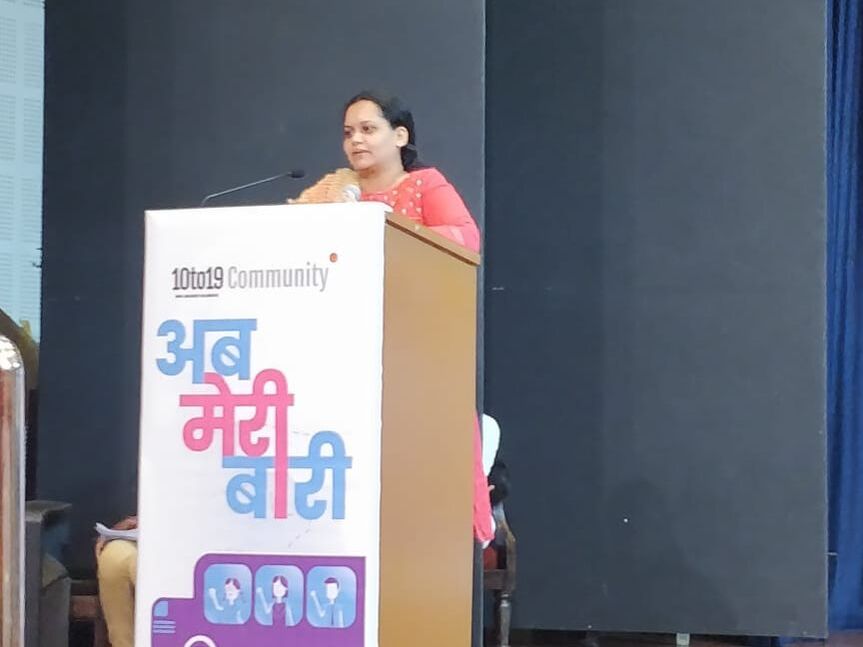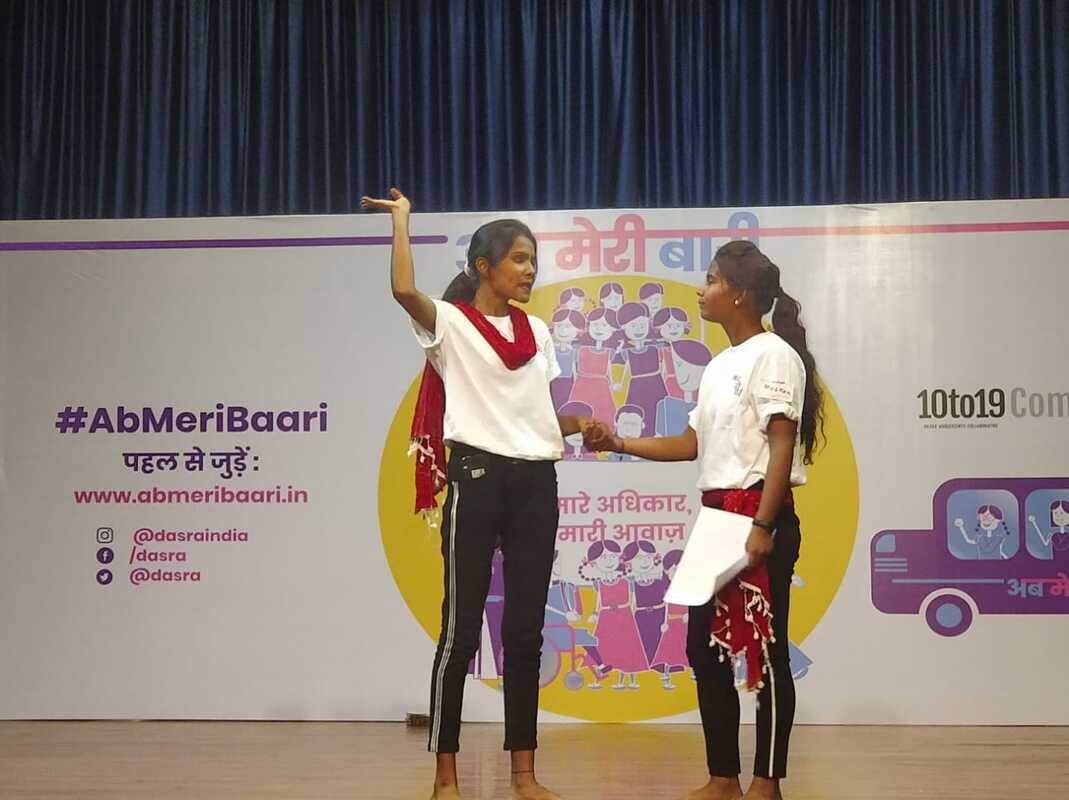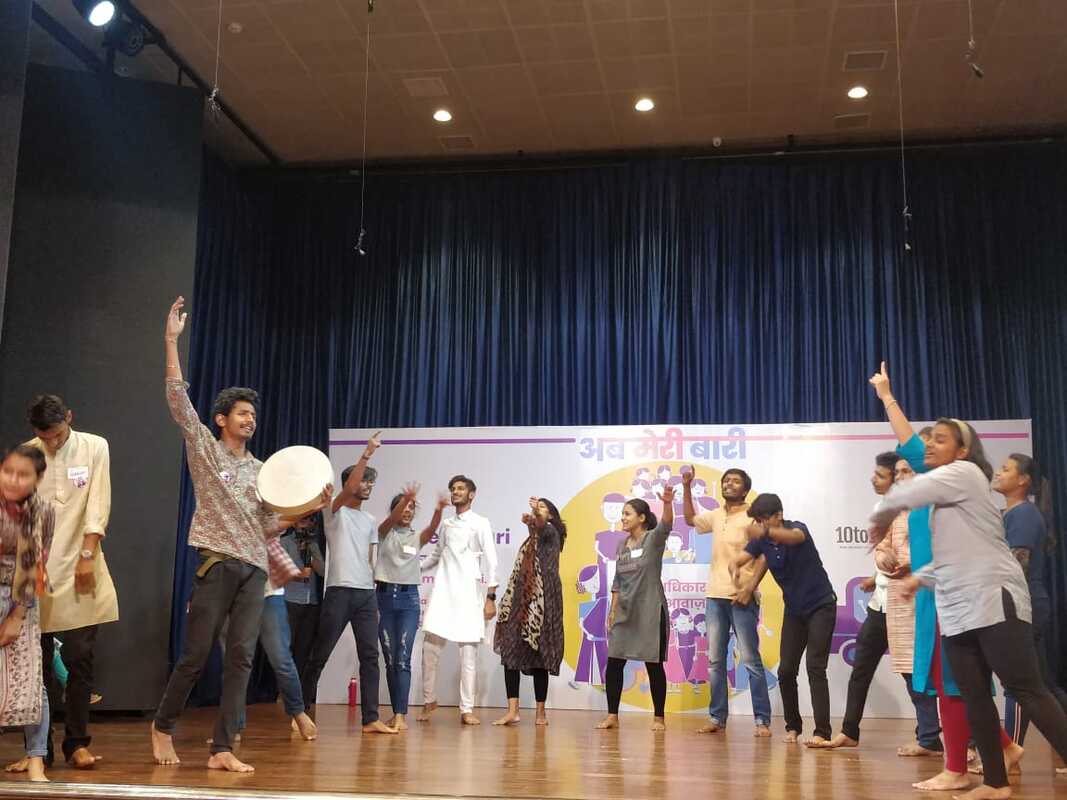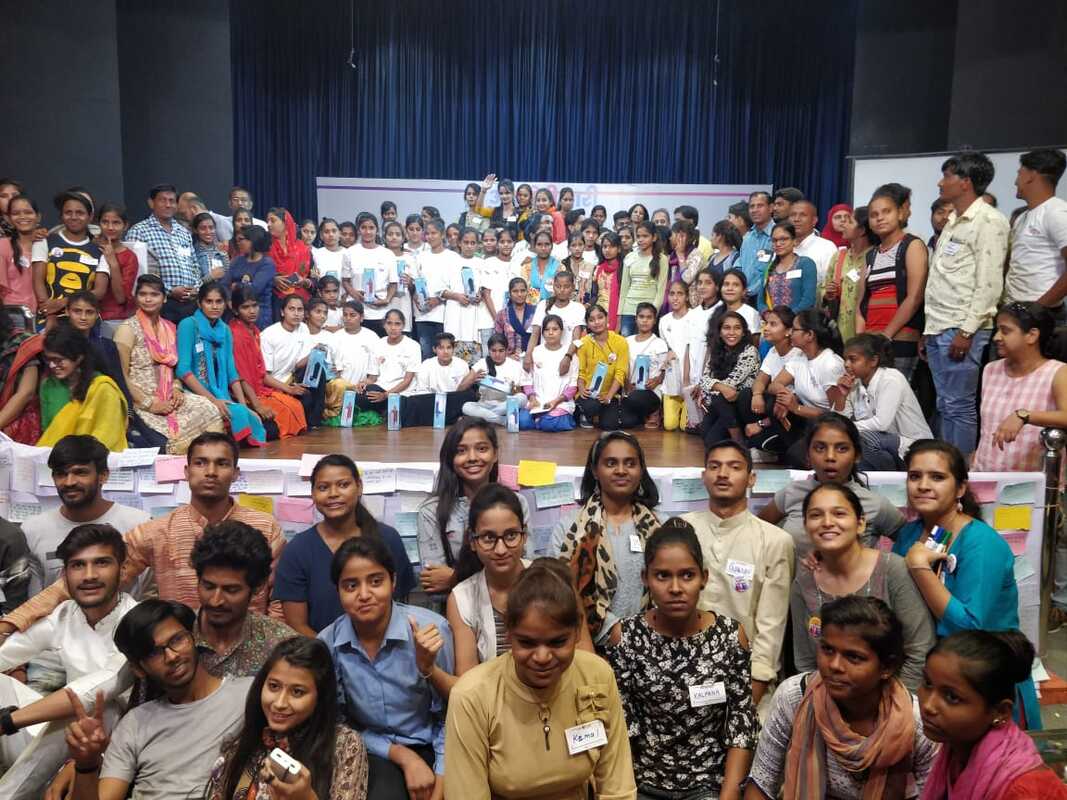Rajasthan
In Rajasthan, over 150 adolescents engaged with government representatives, civil society organizations and peers on some priority areas – health, sexual and reproductive health rights, safety, nutrition, and education. They shared the findings from a community scorecard exercise conducted in 22 villages of three districts in Rajasthan – Karauli, Ajmer and Dholpur.
Based on the community scorecard exercise, the girl champions highlighted some delivery gaps in adolescent-focused government programs and made ten bold recommendations for improved well-being. Some key discussion areas were strengthening of School Management Committee and Village Level Child Protection Committee, lack of information around contraceptives, and overall sexual and reproductive health rights, increasing availability of menstrual hygiene products at Anganwadi Centres, nutritious food for adolescents irrespective of gender, among others.
“During the scorecard exercise we learnt the challenges of accessing the local government hospital. Since it is functional only between 9-11 AM with limited doctors and medical provisions, adolescents are unable to access various health services provided by the government. We request the government to survey these hospitals and revise the hospital timings. We also hope the government can designate requisite medical officers both male and female in our district,” |
At the final event of the bus tour in Jaipur, Rohit Kumar Singh, Principal Secretary of Medical, Health and Family Welfare Department (Government of Rajasthan), engaged with the adolescents to discuss their priority areas – health, sexual and reproductive health rights, safety, nutrition and education.
"We are glad to be part of Ab Meri Baari, a girls-led initiative that focuses on voices and challenges of adolescents. Through the scorecard exercise, the girls have been able to play an active role in their own wellbeing and growth. We hope the girls continue the momentum and can work on their recommendations with government representatives."
- Dr Nilima Agrawal, Senior Program Officer - Rajasthan, Magic Bus India
At the final event of the bus tour in Jaipur, Rohit Kumar Singh, Principal Secretary of Medical, Health and Family Welfare Department, Government of Rajasthan engaged with the adolescents to discuss their priority areas – health, sexual and reproductive health rights, safety, nutrition and education.
The ‘Ab Meri Baari’ bus journey was present in Rajasthan at a crucial time when various government representatives recognize the urgency to solve for the complex challenges faced by the women in the state. The National Family Health Survey-4 data indicates that only 0.2 percent of women age 15 years have started childbearing, but this proportion increases sharply to 9 percent among women who are 18 years old and to 21 percent among women who are 19 years old. Young women who had no schooling are more than four times as likely to have begun childbearing as young women with 12 or more years of schooling. The National Family Health Survey-4 data also shows that more than one-third (35%) of women age 20-24 years got married before the legal minimum age of 18.
The ‘Ab Meri Baari’ bus journey was present in Rajasthan at a crucial time when various government representatives recognize the urgency to solve for the complex challenges faced by the women in the state. The National Family Health Survey-4 data indicates that only 0.2 percent of women age 15 years have started childbearing, but this proportion increases sharply to 9 percent among women who are 18 years old and to 21 percent among women who are 19 years old. Young women who had no schooling are more than four times as likely to have begun childbearing as young women with 12 or more years of schooling. The National Family Health Survey-4 data also shows that more than one-third (35%) of women age 20-24 years got married before the legal minimum age of 18.
Contact Us
For media queries, partnerships or any other information, email: [email protected]
No user of the toolkit shall create or disseminate content that is harmful, discriminatory (on the basis of ethnicity, colour, caste, sex, sexual orientation, race, religion, disability or otherwise), obscene, pornographic, paedophilic, invasive of another's privacy, fraudulent, deceptive, threatening, harassing, defamatory, in infringement of someone else’s intellectual property or otherwise unlawful in any manner whatever. The user will be solely responsible for creating or disseminating any information or remarks which are of the foregoing nature, and such creation or dissemination will not be attributed to or associated with Dasra in any manner whatsoever.



